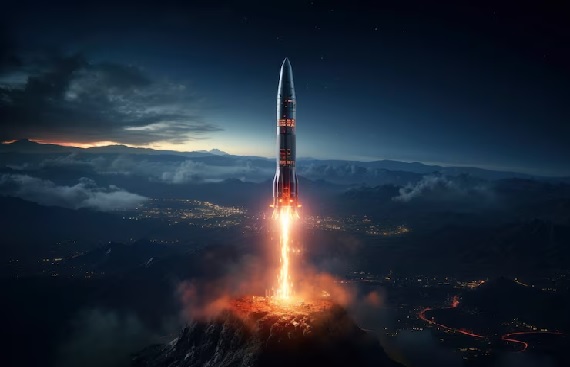Bengaluru Startup Builds India's First Fully Reusable Rocket, Eyes 2027 Launch

- Ethereal Exploration Guild is building India’s first fully reusable medium-lift rocket, Razor Crest Mk-1, targeting a 2027 demo.
- The startup’s R&D roots at ISRO and focus on full-stage recovery give it a bold edge in the reusable space race.
- With a 96-hour turnaround, India's largest private testing facility, and plans for 70+ launches annually, the startup aims to revolutionise orbital access.
With a name that could have been torn straight out of a sci-fi book, Ethereal Exploration Guild has an ambitious goal: to create one of India's first completely reusable launch vehicles (RLVs). CEO and co-founder Manu J. Nair says, "The term 'Ethereal' is inspired by the ancient idea of ether, and 'guild' signifies a group of skilled builders who are close-knit. That's us a community of engineers, innovators, and explorers."
While space exploration is often associated with advanced tech, Nair believes it’s still stuck in a throwaway model. “Launching a rocket once and dumping it in the ocean is like flying a Boeing 747 and then scrapping it,” he says. Ethereal’s goal is to break that model with true reusability a potential game-changer, especially in the medium-lift segment which dominates 91% of the commercial market.
Nair started the Bengaluru-based company in 2022 along with COO Shubhayu Sardar and CTO Prashanth Sharma. The company has a 31-strong engineering team today. Nair and Sardar met for the first time at ISRO, where Sardar was posted as his mentor at the Human Space Flight Centre. Subsequently, working at Manastu Space, Nair met Sharma and inducted him into the team. The trio spent more than six months working on their vision of "democratised and multipolar space access."
But creating India's first reusable vehicle was no cakewalk. "We fought the skeptics everyone believed full-stage reusability was not possible. Added to that, we faced the normal spacetech challenges: limited infrastructure and a shortage of appropriate test facilities," Nair says.
Ethereal Exploration Guild's lead rocket is the Razor Crest Mk-1, which will demonstrate a full flight by March 2027. In contrast to most currently existing or proposed RLVs which recover only the booster stage Razor Crest Mk-1 recovers both the booster and upper stage, a major step in reusability. The group is in full-fledged propulsion system testing and validation.
With future iterations of Razor Crest, the company aims to provide on-demand launch service at significantly lower prices. "Our 96-hour turnaround and our fleet of only 3-4 vehicles might enable more than 70 launches per year. That means no mass manufacturing required," Nair explains. The greatest challenge, he continues, is how to achieve reliability at scale.
In the future, Ethereal plans to grow to a 100-person team in a year and is already engaged with commercial satellite constellations, LEO operators, and next-generation human-rated systems. They've also acquired a 700,000 sq ft rocket testing facility in Cuddalore, Tamil Nadu, India's largest private testing facility. Plans for expansion involve searching for bigger buildings for integration and upper-stage testing.
While world powers such as SpaceX, Blue Origin, and ISRO venture into the realm of reusability, Ethereal Exploration Guild wishes to make India a serious contender in the next-generation launch economy one that does not dispose of rockets, but returns to take to the skies once more.

